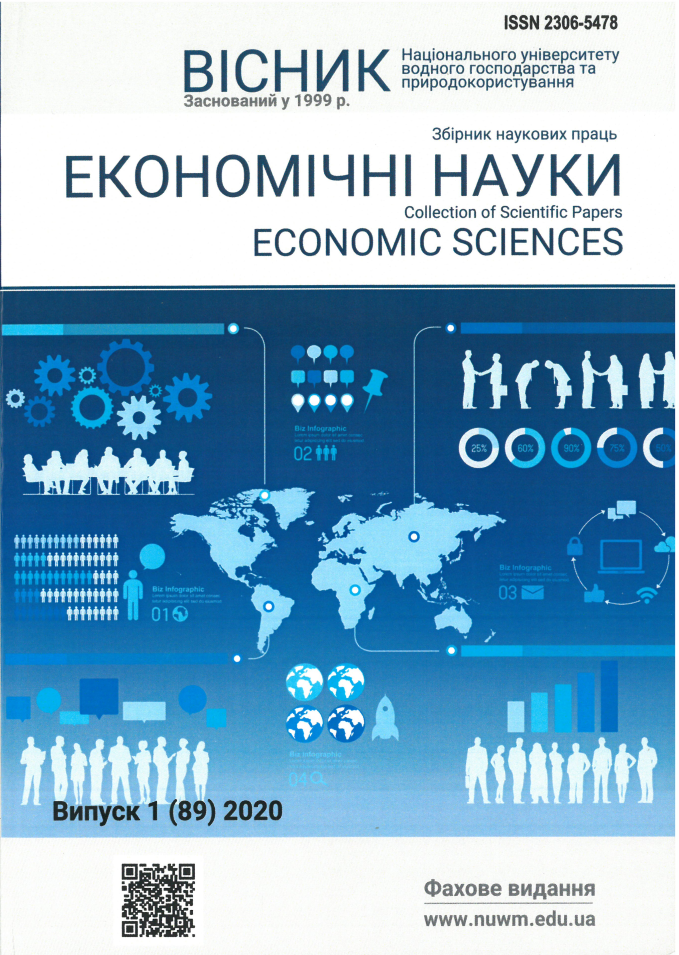DIRECTIONS OF REALIZATION OF TOURIST ENTERPRISES SOCIAL COMPONENTS
DOI:
https://doi.org/10.31713/ve1202016Keywords:
directions, tourist, enterprises, social, services, sustainable development.Abstract
In the article the directions of realization of social components ofactivity of tourist enterprises are considered, among which the authorsdefine the following: social development of labor collectives of touristenterprises; expanding the range of socially-owned tourist services,including educational tourism, medical (medical) tourism, cultural andhistorical tourism, tourism for children; joining tourism companies tosustainable development initiatives.The first direction of social components realization is based on theimprovement of organization of activity of the tourist company and relations within the labor collective. In the tourism industry, as in any other enterprise, social protection mechanisms should work and corporate social responsibility programs should be developed. Another direction ofimplementation of social components in the activity of tourism enterprises is the provision of tourist services that have a social focus. The sociality of individual tourism programs, especially in the field of children’s tourism, is conditioned by state, grant funding. At present, such forms of financing are not as large as those of the planned economy, but they continue to exist and take on new forms. A separate direction of the social component of tourism enterprises is their activity in the environment of corporate support for sustainable development goals. Ideas, sustainable development programs aimed at improving the environment, reducing environmental and man-made risks make tourism more attractive overall and create separate tourism programs based on them.The article determines that for the development of tourism enterprisesin the direction of ensuring the realization of their social functions, in thefuture, the following tasks must be solved: formation of a modern regulatory framework for the definition and introduction of new technologies; provision of economic and legal information, aspiration for further integration into the world tourist community; forming in the general public a clear understanding of the importance of tourism as a priority for the economy; establishing partnerships between the government of the country and local authorities.References
Bondarenko M. P. Problemy rozvytku turystychnykh rynkiv. Investytsii: praktyka ta dosvid. 2017. № 2. S. 87–91.
Uzunov F. V. Upravlinnia rozvytkom derzhavnopryvatnoho partnerstva u realnomu sektori: na prykladi turystychnoi haluzi Ukrainy. Ekonomika i derzhava. 2014. № 2. S. 124–126.
Meshko N. P., Hvozdieva A. Ye. Osoblyvosti zabezpechennia efektyvnosti upravlinnia popytom v turystychnomu biznesi. Efektyvna ekonomika. 2018. № 11. URL: http://www.economy.nayka.com.ua/?op=1&z=6645 (data zvernennia: 10.02.2020).
Horokhovska K. V. Implementatsiia derzhavno-pryvatnoho partnerstva v turystychnyi sektor yak mekhanizmu ekonomichnoho zrostannia rehionu ta krainy zahalom. Efektyvna ekonomika. 2016. № 9. ULR: http://www.economy.nayka.com.ua/?op=1&z=5155 (data zvernennia: 10.02.2020).
Nezveshchuk-Kohut T. S. Problemy ta napriamy pidvyshchennia efektyvnosti upravlinnia yakistiu obsluhovuvannia na turystychnykh pidpryiemstvakh. Efektyvna ekonomika. 2015. № 4. ULR: http://www.economy.nayka.com.ua/?op=1&z=3995 (data zvernennia: 10.02.2020).
Harbera O. Ye. Terytorialnyi brendynh yak instrument pidvyshchennia konkurentospromozhnosti turystychnoi destynatsii. Efektyvna ekonomika. 2016. № 10. ULR: http://www.economy.nayka.com.ua/?op=1&z=5182 (data zvernennia: 10.02.2020).
Redko V. Ye., Okata Ya. H. Potentsial rozvytku ta orhanizatsii MISE turyzmu. Efektyvna ekonomika. 2019. № 12. URL: http://www.economy.nayka.com.ua/?op=1&z=7498 (data zvernennia: 10.02.2020).
Samoilova I. I. Derzhavna polityka shchodo rehuliuvannia rozvytku likuvalnoozdorovchoho turyzmu v Ukraini. Derzhavne upravlinnia: udoskonalennia ta rozvytok. 2018. № 12. URL: http://www.dy.nayka.com.ua/?op=1&z=1356 (data zvernennia: 10.02.2020).
Mukhin V. S. Kontseptsiia «zelenoi ekonomiky» ta yii zastosuvannia v kurortno-turystychnii sferi. Efektyvna ekonomika. 2019. № 3. URL: http://www.economy.nayka.com.ua/?op=1&z=6965 (data zvernennia: 10.02.2020).
Hryshchenko O. F., Kostornova O. S. Doslidzhennia perspektyv vykorystannia zelenoho marketynhu v turyzmi. Efektyvna ekonomika. 2017. № 8. ULR: http://www.economy.nayka.com.ua/?op=1&z=5723 (data zvernennia: 10.02.2020).
Hankina M. S. Sotsialno-komunikatyvna funktsiia turystychnykh pidpryiemstv na osnovi rozvytku prohram mizhnarodnoho osvitnoho turyzmu. Investytsii: praktyka ta dosvid. 2017. № 10. S. 64–66.
Ivchenko L. O., Kuzhyl S. V., Petrenko M. V. Osoblyvosti orhanizatsii dytiachoho turyzmu v Ukraini. Ekonomika ta derzhava. 2019. № 1. S. 83–88.

